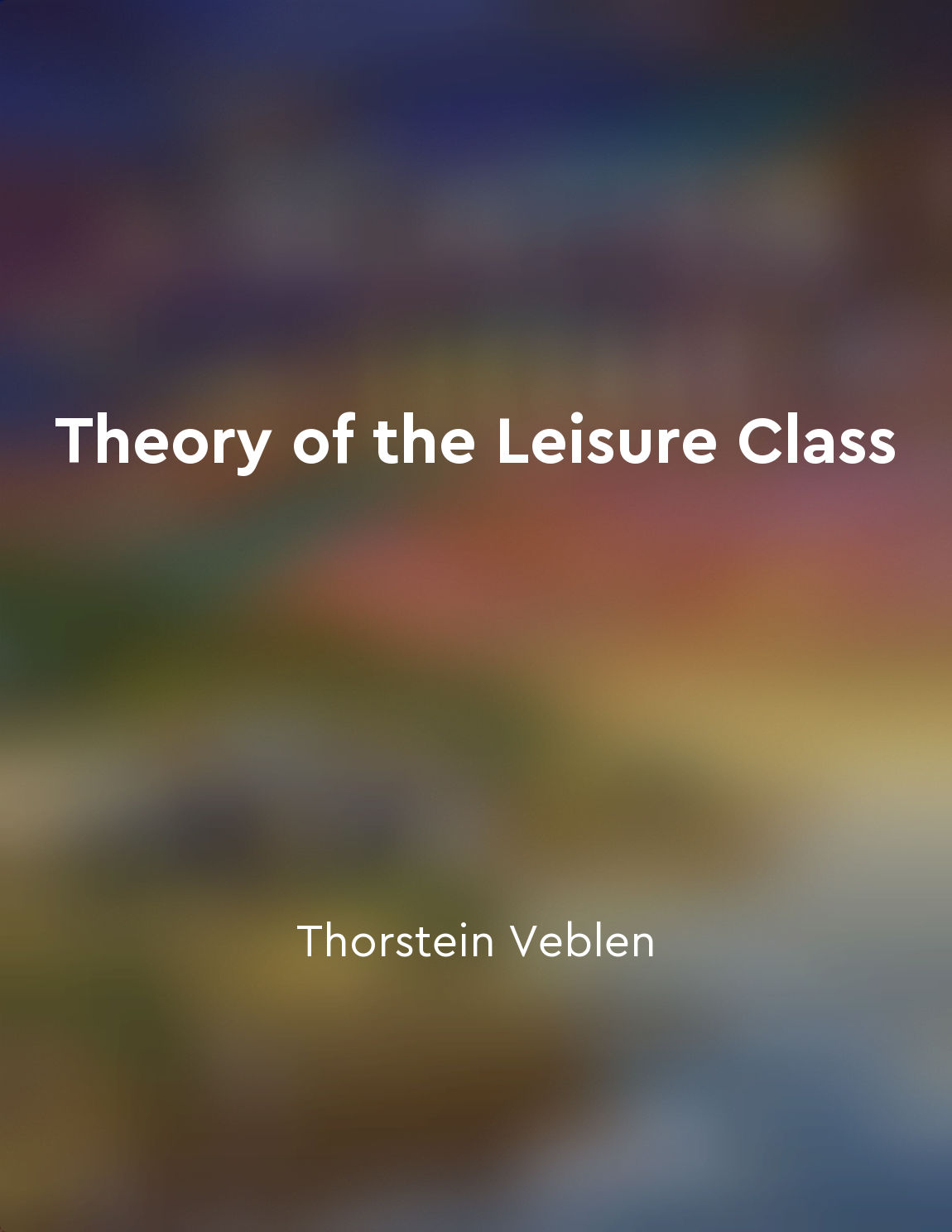Pecuniary Emulation fosters Conspicuous Consumption from "summary" of Theory of the Leisure Class by Thorstein Veblen
Pecuniary emulation is a key driver of conspicuous consumption within society. This concept revolves around individuals seeking to emulate or surpass the financial status and material possessions of others in their social circle. It is a competitive pursuit rooted in the desire for social status and prestige. Individuals engage in conspicuous consumption as a means of displaying their wealth and social standing to others. This display often involves the lavish expenditure of money on goods and services that serve little practical purpose beyond signaling one's financial capability. The pursuit of pecuniary emulation leads individuals to engage in a cycle of competitive spending, where the desire to outdo one another in terms of material possessions drives consumption patterns. This phenomenon is particularly prevalent among the leisure class, who are motivated by a desire to distinguish themselves from the lower classes through their extravagant displays of wealth. Conspicuous consumption serves as a form of social competition, where individuals seek to gain admiration and respect from their peers by showcasing their ability to afford luxury goods and experiences. The pressure to engage in conspicuous consumption can be overwhelming, as individuals strive to keep up with the spending habits of their social circle. This can create a cycle of escalating consumption, where individuals feel compelled to continuously upgrade their possessions in order to maintain their social status. The pursuit of pecuniary emulation can lead to wasteful spending and excessive consumption, as individuals prioritize the accumulation of material wealth over more meaningful pursuits.- Pecuniary emulation fosters conspicuous consumption by fueling a competitive desire among individuals to display their wealth and social status through extravagant spending. This phenomenon is driven by the need for social recognition and validation, as individuals seek to distinguish themselves from others through their material possessions. The pursuit of pecuniary emulation can have detrimental effects on individuals and society as a whole, leading to wasteful spending and the prioritization of material wealth over more meaningful pursuits.
Similar Posts
Minimalism is a lifestyle choice
Minimalism is not just about decluttering your physical possessions; it is a lifestyle choice. It is a deliberate decision to l...

Simplify your routines to create more time for what you love
In a world filled with endless distractions and demands on our time, it can be easy to get caught up in the hustle and bustle o...
Cultivating a sense of curiosity and openness to new experiences can increase happiness
One key to increasing happiness is to cultivate a sense of curiosity and openness to new experiences. When we approach life wit...
Supply and demand determine prices
When you walk into a store and see that the price of a product has gone up, you can be pretty sure that it's because more peopl...
Clutter is a barrier to happiness and peace
Clutter is more than just a physical obstacle in our homes - it is a mental and emotional barrier that stands between us and tr...

Authentic happiness is not dependent on external validation
Authentic happiness is a state of well-being that is not contingent upon external validation. This means that true happiness do...
Education is essential for financial success
Education is the key to financial success. It is not about the traditional education that most people think of - a college degr...
Word of mouth is highly influential
Word of mouth is like a secret weapon when it comes to spreading ideas or products. It's not just something we do casually; it'...

The Renaissance and Reformation
The Renaissance was a period of great cultural and intellectual flourishing in Europe, characterized by a renewed interest in t...

Building trust is essential for successful persuasion
Trust is the cornerstone of successful persuasion. Without trust, all attempts to persuade are likely to fall flat. When people...


